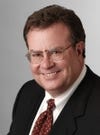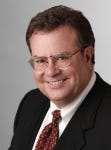The FSD as Multi-Concept Operator
John Lawn
A new breed of restaurant entrepreneur appeared on the commercial scene about 20 years ago, a variety typified by Rich Melman, the brilliant, quirky and hugely successful founder of Chicago's Lettuce Entertain You Enterprises.
Visionaries like Melman, Larry Levy and others became known as "multi-concept" operators and exhibited much of the spirit of the independent restaurateur. Instead of emphasizing the development of a clonable unit concept, they focused on building unique concepts. Their one-of-a-kind destination eateries often became hugely popular, with large daily volumes.(They were often were imitated by others who frequently tried unsuccessfully to transform them into cookie-cutter chains.)
The multi-concept guys were different, though. They typically maintained the original destination as a single location, and applied their entrepreneurial energy to making each new location they opened another signature operation. Hence the term "multi-concept chain operator."
Today, many successful chains have adopted this model, and just like a well designed mutual fund, they thrive not so much because of the economies of scale they achieve with cookie cutter expansion, but because they are diversified. They appeal to many different customer tastes, moods, lifestyles and inclinations, and enjoy a great deal of marketing flexibility.
If a particular concept tires and its customer base shrinks, management can tinker with it, or morph it into something entirely different, while the rest of the chain remains healthy and profitable.
Among other benefits, this style of operation allows them to attract some of the best managerial and culinary talent, as well as front-line teammates who thrive in the creative environment of such business operations.
I have observed these same traits and operating styles among some of the most successful foodservice directors I know. While it is often advantageous, even essential, to develop an "umbrella" brand for one's dining department, most customers make individual dining, convenience and purchasing decisions in the context of individual menus, locations and concepts.
The FSD is usually a "hands-on" type, finding the right managers and supervisors to oversee each one, and then brainstorming the concept and its menu repeatedly with the operating team to fine-tune it based on how the customers respond.
Sometimes these concepts compete with one another in the same food court; other times they may be spread across a campus. The point is, the operator manages them as separate P&Ls, watches their financials and volumes over time, and tinkers with them, "re-invents" them or replaces them as the situation or cost/revenue structure requires.
A couple of examples come immediately to mind. Pat Bando's decision earlier this year to close down a coffee bar at Boston College where sales had been in decline, replacing it with a new "Chocolate Bar," is an example of this dynamic at work. So is the "New Delhi Deli," a seemingly incongruent concept developed by Betty Perez that offers corned beef sandwiches and Indian vegetarian fare at the University Hospital of the University of Medicine and Dentistry in New Jersey. In San Bernardino county, John Peukart gave each high school in the district a uniquelythemed café and used student involvement in the planning to build a sense of ownership and respect among the student bodies that often eludes those in K-12 foodser-vice.
Some of these efforts were part of major renovations, some were not. In fact, while money always helps, the real mark of successful multiple concepts is the ability of the director to identify multiple customer needs and preferences, and to satisfy them.
There are countless examples of innovators of this sort in Food Management's readership, but the industry all too often thinks of them as "cafeteria directors" rather than as the multi-concept operators that they in fact are. It requires an approach and skill set that many more directors need to develop, and one that the community's recruitment and hiring practices need to recognize.
In fact, these are the same traits we on FM's editorial staff look for when we judge our Best Concepts competition each year and that we look to recognize at our annual IDEAS Conference in Chicago, in May. We are busy planning the content for the conference itself right now, and are looking to offer you a program that will help you develop the ability of your own department and team to generate intra-preneurial, multi-concept operations that will further your goals.
Reserve the dates now—May 17-19—just before the National Restaurant Show. And stay tuned for more information about our IDEAS program in the weeks to come.
About the Author
You May Also Like






